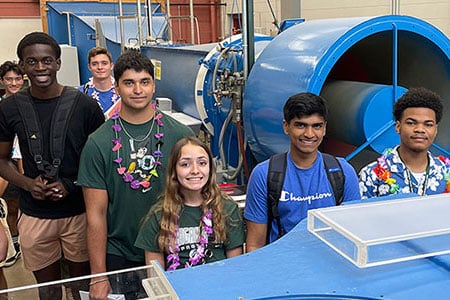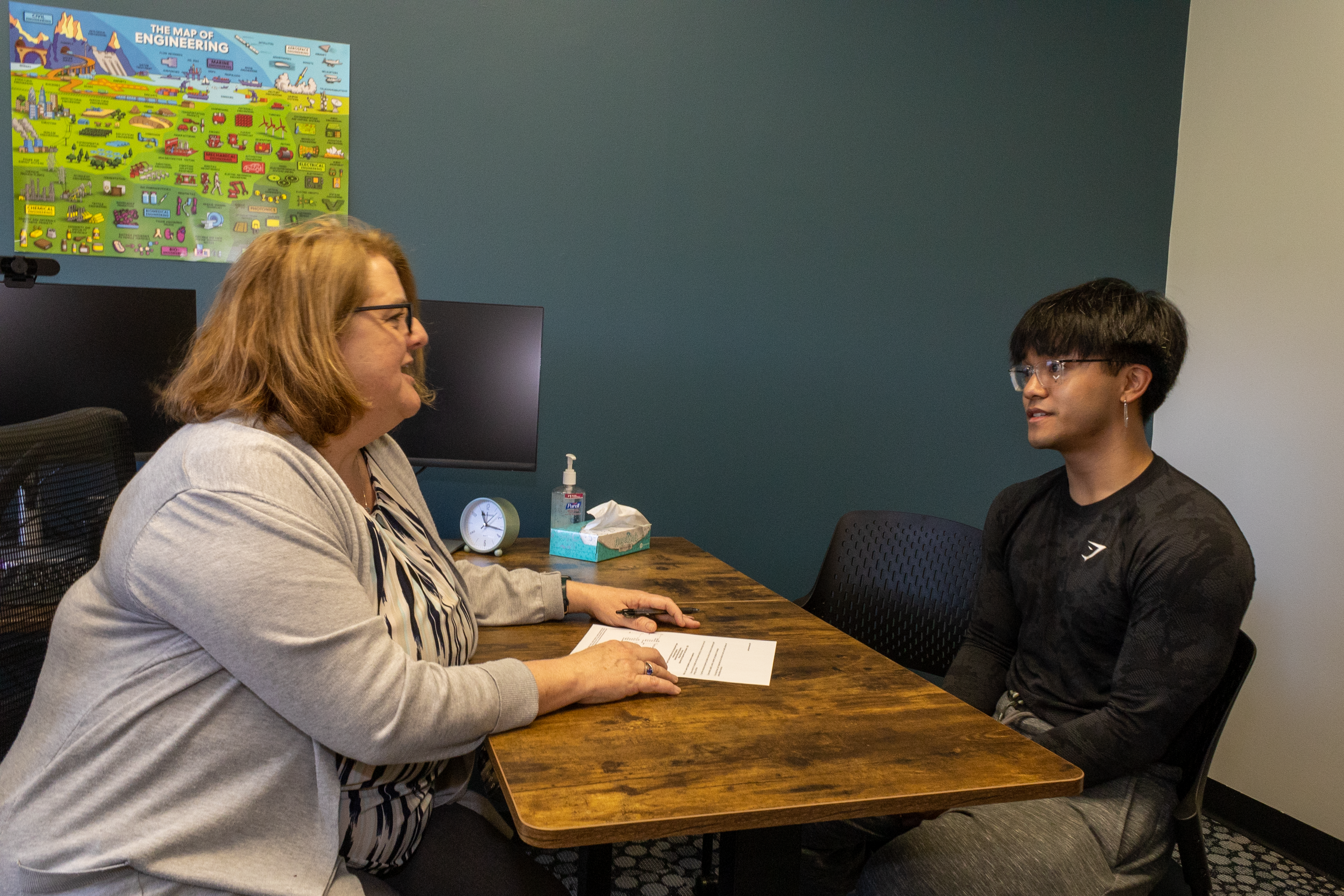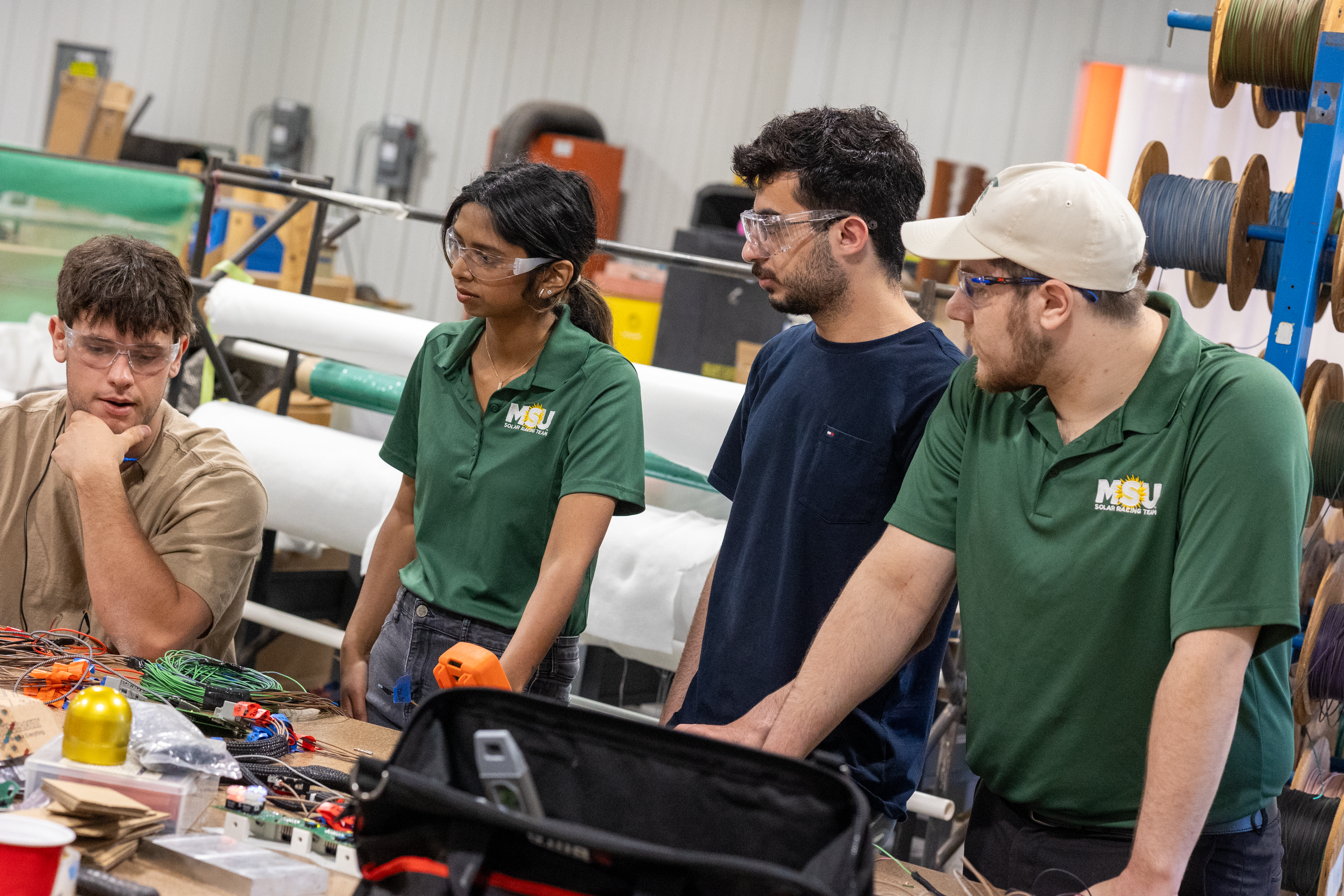The College of Engineering is among Michigan State University’s top producers of research discoveries and commercialization that help build a diversified economy and generate jobs for Michigan and the Midwest. Three new National Science Foundation (NSF) grants will add $1.16 million in research funding to the Department of Computer Science and Engineering (CSE). Highlights of the grants follow:
Debugging and securing AI

CSE Associate Professor Sijia Liu , lead PI on an NSF Medium Grant, will use $268,000 in funding to make artificial intelligence (AI) systems safer and more reliable. The research focuses on “teaching” large language models (LLMs) to forget harmful or misleading information, known as LLM unlearning, much like a skilled surgeon removing a tumor while preserving healthy tissue.
The four-year project, in collaboration with PIs from Stanford University and Wayne State University, aims to develop AI systems that safeguard safety and privacy while adapting to real-world needs in areas such as cybersecurity, healthcare, and education.
The project also offers strong educational and outreach opportunities, including curriculum development, research dissemination through workshops, tutorials, publications, and open-source software, as well as the creation of inclusive mentoring programs.
Read more about Advancing Large Language Model Unlearning: Foundations and Applications .

Strengthening the reliability of AI-driven weather forecasting
CSE Professor Pang-Ning Tan will share $600,000 in research funding with Professor Lifeng Luo, director of MSU’s Environmental Science and Policy Program, for a three-year project “Enhancing Adversarial Robustness of Geospatio-Temporal Models.”
Advanced AI models for weather prediction have demonstrated higher accuracy and lower computational costs when compared to traditional approaches over time. However, subtle data modifications by adversaries may distort the predictions, disrupting planning and resource allocation for agriculture, energy, transportation, and disaster management. This project will investigate the vulnerability of current AI-based forecasting models to adversarial attacks and to develop robust defense techniques that will strengthen their reliability, supporting more effective decision-making.
Read more about Enhancing Adversarial Robustness of Geospatio-Temporal Models.

Empowering Graph Neural Networks from a Data Perspective
Making graph data more compact, cleaner, and better aligned is the goal of a four-year $300,000 research project by CSE faculty members Assistant Professor Hui Liu and MSU Foundation Professor Jiliang Tang. The project will enable more efficient, accurate, and robust AI systems across healthcare, finance, and national security.
Researchers will address scalability, out-of-distribution issues, and robustness from a data-centric perspective rather than model advancement. Key strategies include condensing large graphs to maintain critical properties, aligning distributions to handle out-of-distribution data, and cleaning noisy data.

The team, including members from Emory University and the University of Michigan, will share a $1 million grant to support PhD students and potentially benefit industries like social networks, drug discovery, and healthcare.
Read more on Empowering Graph Neural Networks from a Data Perspective.
Written by Patricia Mroczek
MSU College of Engineering Media and Public Relations page





